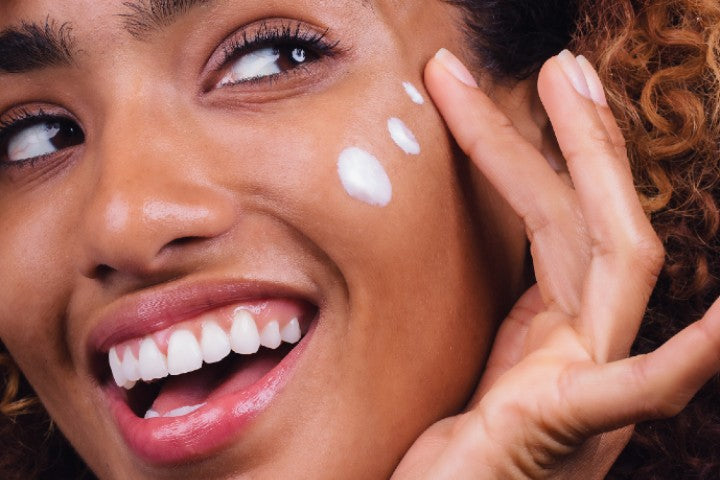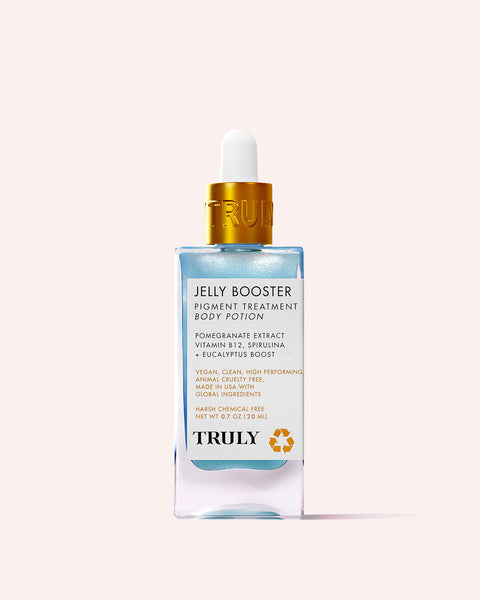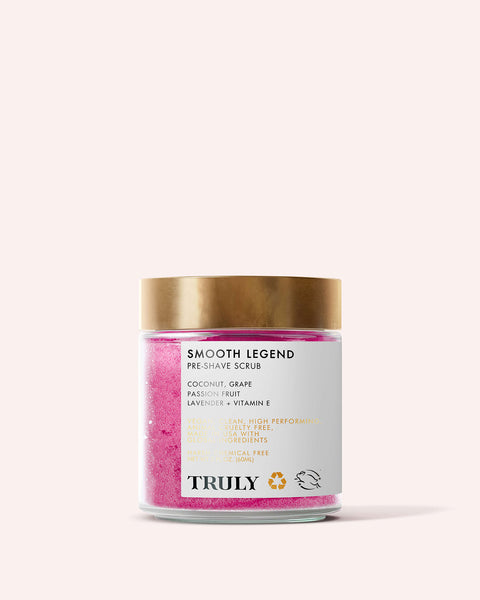The 4 Ingredients to Beat Out Dry Skin

Dry skin affects all of us.
With the right ingredients, we can drive dry, dehydrated skin far, far away.
Often, dry skin is a result of exposure to environmental causes. For example, the weather, especially cold or dry weather, can cause your skin to become dehydrated. Indoor heat sources, such as fireplaces and space heaters, provide warmth without humidity, which can dry out your skin.
Similarly, bathing or showering in hot water can cause dryness. You should also be cautious with the products you use on your skin. Some soaps, laundry detergents, and shampoos can remove the oil from your skin, stripping the skin of its moisturizing oils.
Fortunately, there are specific ingredients that can help combat dry skin. Let’s take a look at the top four.
Lactic Acid
Lactic acid is an alpha hydroxy acid that’s found in a wide range of skincare products. When you apply lactic acid to your skin, the bonds for the cells on the skin’s surface will dissolve. This works by exfoliating the skin to improve cell turnover and stimulate cell renewal, revealing a brighter, smoother complexion.
Lactic acid is a great option for you if you have sensitive skin, as it’s gentler than other alpha hydroxy acids available. The formula works effectively by improving the way your skin is moisturized. After using lactic acid, your skin should stay hydrated for a long period of time.
If you’re buying a product that contains lactic acid, you should look for one that has a concentration of 5 to 10 percent. Some formulas contain up to 30 percent. While this can be effective later, it’s important to start with a low percentage. As your skin gets used to lactic acid, you can increase the strength of the product you use slowly to avoid irritation. Lactic acid can be found in creams, lotions, serums, peels, masks, and more. You can also have your skin professionally treated with a lactic acid peel.
Try Truly’s Starface Jelly Sleep Mask, made with lactic acid, to plump and renew skin as you snooze.
Aloe Vera
Aloe vera is a popular herbal remedy that works well for a wide range of skin concerns, from sunburns to dry skin. You can use it in place of a traditional moisturizer. Aloe vera works to keep your skin hydrated by sealing in the moisture.
“There are tons of uses for it, and it’s great for face masks and calming, but it’s not better than other things we have, like vitamin C and niacinamide,” says dermatologist Marnie Nussbaum. “It’s a safe thing to use for the skin for hydration and anti-inflammatory, but it’s not an end-all, be-all.”
You can use fresh aloe vera gel directly from the plant’s leaves. All you need to do is break off a leaf and press out the gel-like substance. There are also products on the market that include aloe vera. One benefit of this is that the aloe vera may be blended with other ingredients that can hydrate your skin. Not only will you get the benefits of aloe vera, but you may see better results from the added ingredients.
We recommend trying Truly’s Mary Jane Glow Serum, which is formulated with aloe vera and CBD to hydrate and nourish your skin.
Hemp Seed Oil
Hemp seed oil is a great option for many different skin types because it’s non-comedogenic, which means it won’t clog your pores. It works by providing moisture to your skin without overdoing it or clogging your pores. You can use hemp seed oil for both dry and oily skin types.
Hemp seed oil contains omega-6 fatty acids, which are anti-inflammatory and promote skin cell generation. When you use hemp seed oil, you can both cut back on inflammation and moisturize your skin. This oil can be very beneficial when used for acne and other skin conditions because it keeps the skin hydrated.
There are several ways to see the benefits of hemp seed oil. First, you can apply it topically to your skin. You can also mix hemp seed oil with other ingredients, such as essential oils or coconut oil. Make sure any products you’re using are skin-safe. Some products, such as moisturizers and serums, contain hemp seed oil as well.
To keep your skin moisturized, start slathering your skin in Truly’s Hemp Jelly Facial Serum every day.
Rosehip
Rosehip oil or rosehip seed oil comes from the rose bush. It’s produced by pressing the rose plant’s fruit and seeds. The oil is filled with vitamins and fatty acids, which provide many benefits to the skin. One of the main benefits that rosehip oil provides is hydration.
Rosehip oil is an ideal skin treatment for dry skin, and it can promote your skin’s overall appearance, as well as making it softer. Because of the fatty acids that rosehip oil contains, your skin is better able to retain moisture. Your skin will easily absorb the rosehip oil, making it easy for it to soak in all of the nutrients. According to skincare experts, rosehip oil locks in the skin’s moisture for all-day hydration.
One of the ways you can use rosehip oil is by simply applying it to your skin topically. It can be applied twice per day. You can use rosehip oil on its own or in conjunction with another type of oil, such as coconut oil, argan oil, or jojoba oil.
Some people like to mix rosehip oil with their moisturizer too. When you’re using rosehip oil, it’s important to read the label. Rosehip oil can go bad easily, so you may need to store it in the refrigerator. You can find products, including serums and creams, that contain rosehip oil too.
A product we love that contains rosehip oil is Truly’s Vegan Collagen Facial Cleanser, designed to tighten, plump, and hydrate the skin.
If you’ve got dry skin, you’re going to want to start trying these ingredients to boost your skin’s hydration. Luckily for you, we have a variety of treatments for dry skin here at Truly. Try the Flawless Skin Bundle for a triple dose of hydration.








